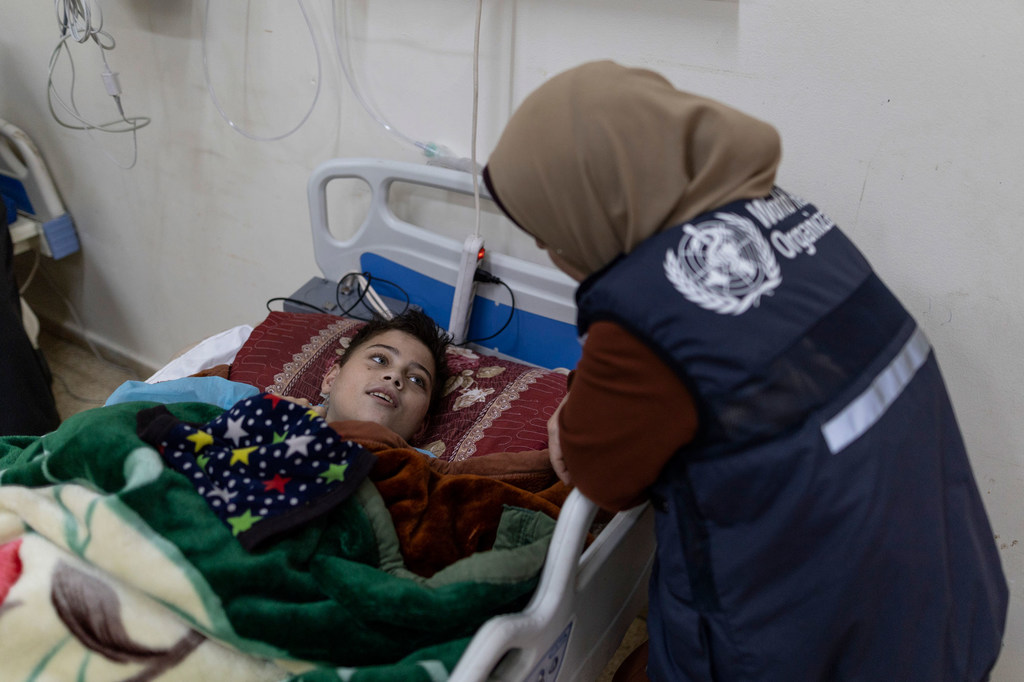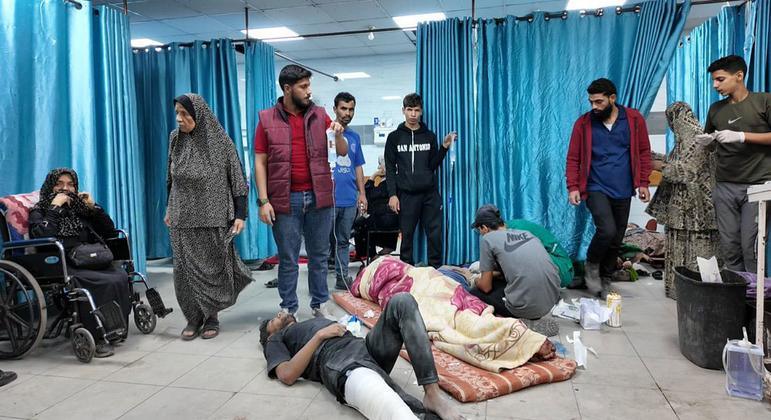Monday told World Health Organization (WHO) Representative Rik Peeperkorn UN news About the desperate conditions he had seen at Al-Ahli before the attack, and the serious restriction of movement that prevents thousands from being evacuated for medical treatment outside Gaza.
“I was in Gaza several weeks ago and I came out in early March, just before the auxiliary block started and the attacks started again.
When I was there, during the ceasefire, we organized polio vaccinations and medvacs (medical evacuations) and we stored ourselves on essential medications and medical supplies. This was also the only time there were decent food stores in Gaza.
There was almost a beam of hope among all misery. Places I had been before, like Rafah in the south, or Jabalia in the north, were complete destruction of wilderness, but people, including our own staff, went back to their homes and tried to repair broken houses or build provisional camps. You saw commercial activities restart and a choice of food.
But then, of course, with blockade, food, water and essential medicines started to run out very quickly. Although we stored ourselves under the ceasefire, we are now critically low on supplies and it is challenging to keep hospitals even partially open.
We have completely run out of therapeutic milk, antibiotics for the treatment of serious infections, trauma painkillers, insulin, ambulance spare parts, oxygen containers, etc.

Medical Evacuation of Patients from Gaza (File)
A few days before the attack on Al Ahli, a medical specialist there said the hospital was already crowded because it is one of the most important hospitals in the north of trauma patients [those who have suffered severe and life-threatening injuries]And that they were forced to perform surgery under questionable sterile conditions.
They probably lacked surgical dresses, curtains or gloves. They even had to wear the same gloves from one operation to the next. Due to the lack of equipment, operations could take hours and increase the risk of permanent disability or amputations.
The staff asked us for the supplies we have in our two stocks in the southern part of Gaza, but we were not allowed.
This auxiliary block must be lifted and we have to return to a scheme whereby we can have humanitarian corridors throughout Gaza without being denied or delayed entry. Even when a war takes place, humanitarian supplies should be allowed in and relief workers should be able to do their work.
Today I talked to my team lines in Gaza, which has been at Al-Shifa Hospital. Al-Shifa, now the large surgical and trauma center for the north, is completely overwhelmed and under supported. We look at the opportunity to get some patients from al-Shifa to the south, but everything is complex.
Too few patients have been able to leave Gaza for the urgent care they so desperately need. We estimate that up to 12,000 patients need medical evacuation, but since the blockade we have only been able to evacuate 121 people, including 73 children.
We call for immediate resumption of medical evacuation through all sorts of routes. It should happen now. “



